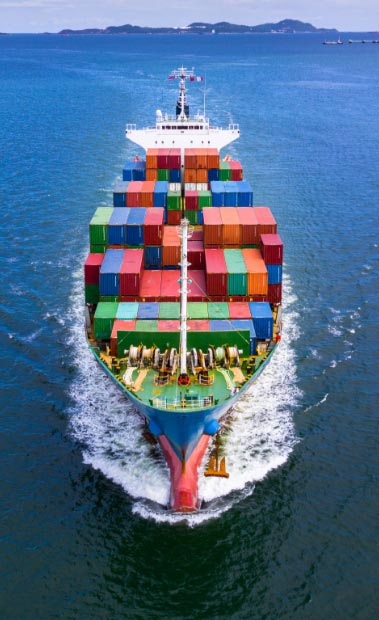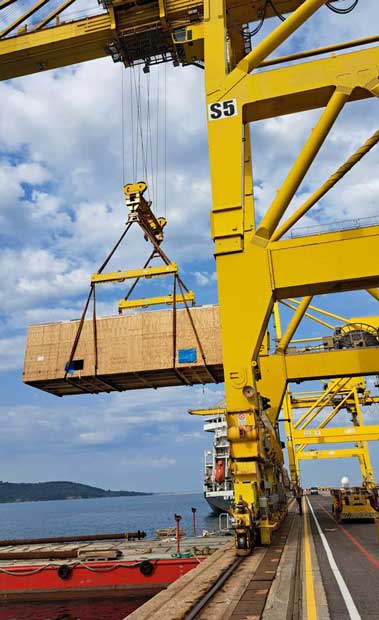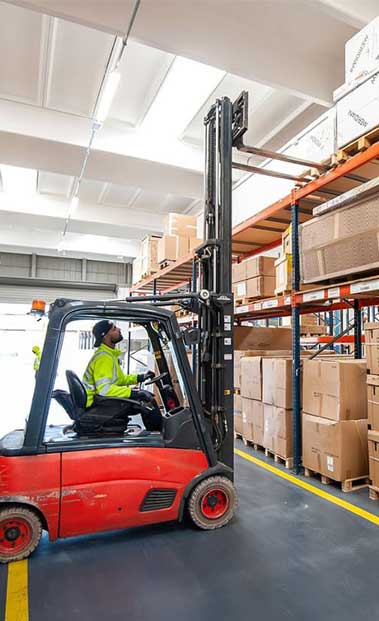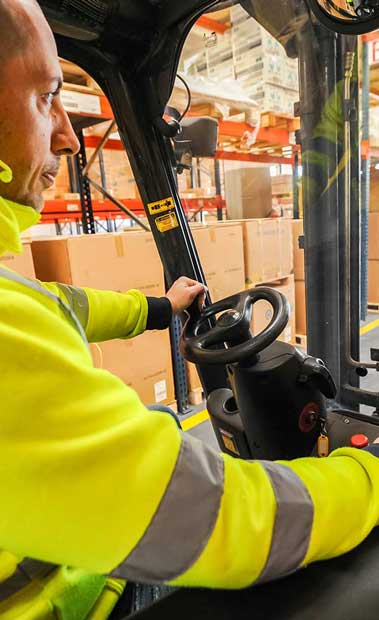International Shipping since 1945
Import and export solutions for any goods and any industry.
Monava. High Quality in Shipping.
We have all the most important certifications to ensure optimal shipment management in compliance with international standards and we are member of the two most important International Freight Forwarders Network: JC Trans Elite and WCA.







Your trustworthy and reliable partner
With over seventy-five years of experience in the international freight industry and a team of highly-skilled experts, we respond rapidly to your requests with effective solutions and a service that keeps even the most demanding customers satisfied.
Monava is the solution for shipping any goods whenever and wherever you want
READINESS
Our role is to be an extension of your import operations in local country and language.
We design customized solutions managing all the processes from the direct contact with supplier and carrier to the document and customs management.
SPEED AND RESPONSIVE
Quick response to requests, attention to timing, problem solving vocation, instant assistance. We are able to provide multiple options for the same shipment and find the ideal solution for your needs at the competitive rate.
EXPERIENCE
Since 1945, our highly qualified personnel, with long and specific experience, daily manage import and export shipments in all 5 continents.
Reliable, trusted, global
Head Office near Milano
Owned Headquarters, with logistics and customs warehouse located near one of the most important International Airport in Southern Europe (Milan Malpensa), is able to manage collections and deliveries from all over Europe.
Operational Offices in Naples
Close to the Naples Port, in a strategic position for the management of all shipments in Southern Italy and Mediterranean Area where we are appreciated for our effectiveness and speed in carrying out customs operations.
Solid financial stability
Scrupulous and punctual financial management makes us reliable as demonstrated by the most important creditworthiness certification bodies:
- Cerved group rating/score: High creditworthiness (A3.1) high reliability (73/100).
- Cribis Dun&Branstreet rating: “Cribis Prime Company” maximum commercial reliability.
Over the years we have attained the certifications and permits required for the privileged management of goods and established priority relations with the key market players. We are also members of two of the most important global networks of international freight forwarders, JC Trans Elite and WCA.

IATA certified
since 1972

FIATA certified
since 1982

ENAC certified
since 2009

AEO certified
since 2012

ISO 9001:2015 certified
since 2022

JC Trans Elite
id 202222

WCA
id 35661

Members of the Road Haulage Register
of 24/05/23
Your shipment, our tailor made solution
We offer tailored solutions and build strategic alliances with our clients. Once we have established their shipping requirements, we lift the burden of transportation with a professional, safe, informative, frequent, flexible, and reliable service.
From International Air to Ocean Transportation, to Customs Brokerage, Warehouse Management, Global Supply Chain Management. Our experience and flexibility create more opportunity and flexibility for our customers.
We manage the entire goods transport chain, from the collection of goods throughout Europe, to customs procedures out of the EEC with direct customs clearance at our bonded warehouse located near the Malpensa Airport Hub, today one of the main important in Europe for freight traffic.
Ocean export
Customized quotation for your FCL and LCL shipment from the place of origin to the port of destination, including insurance coverage (if required), operational and documentary assistance to provide the most efficient and cost-effective solutions to your shipping needs.
Our Ocean export team is extremely quick in contacting the sender in order to build the shipment according to specific needs. We are experts in the procedures and diligent in sending the documentation.


Why should I choose Monava?
Speedy and responsive management and feedback.
We help you to choose the right services and solutions.
Prompt handling of contacts and customer relations.
Streamlined management of pickups, customs procedures and documentation.
Up-to-date details on the status of your shipment.
Experience and fast response times even for the most complex shipments.
Planning on shipping by sea?
Air export
We are IATA agent (International Air Transport Association) since 1972 and ENAC certified since 2002 and this allow us to ship your goods by air all over the world in complete safety.
Our specialized air export team daily provide a quickly response to any kind of request, giving more options to find the best service at the right price. Our partners appreciate that we promptly send out the pre-alert and keep them constantly updated on the shipment status. Thanks to our X-ray machine we are able to handle goods faster and safe to the airport, in compliance with the new safety aviation regulation required.


Why should I choose Monava?
We respond promptly and rapidly to every request.
We help you to choose the right services and solutions.
Speedy responses for goods collections.
Simplified procedures for paperwork with drafts sent out immediately.
Up-to-date details on the status of your shipment.
Handling, security checks and customs procedures carried out at our Monava warehouse.
Planning on shipping by air? We’ll get back to you within 2 hours.
Project cargo
During our long experience we manage with success shipments of special cargo including heavy lift and oversized shipments. We help you to choose the most suitable means of transport for deliver your cargo on time and in the best condition.


Why should I choose Monava?
Clear quotes with no hidden surprises.
A dedicated team of experts.
Well-established relations with the best accredited carriers.
Realtime support and a talent for problem-solving.
Delivery time management.
Planning a project cargo shipment?
Custom warehouse and logistics
In our bonded warehouse we can consolidate goods, load and unload containers or trucks and hold foreign state goods. We manage order preparation and picking in order to help our customer in the complete supply chain.
We got since 2012 the AEO certification, which allows us to manage the customs operation with the simplified procedure in our warehouse.


Why should I choose Monava?
Goods insurance.
Monava staff specially assigned to logistics and warehouse management.
The option to postpone customs clearance of the goods with warehousing and storage.
Incoming goods checks.
Management of ecommerce products with order fulfilment and picking.
Management of expiration dates for non-perishable goods.
Nationwide distribution of goods.
Looking for tailor-made logistics solutions for your imported/exported goods?
Our team
Our staff is a group of highly qualified professionals with an average of 10 years of experience in the international shipping, working together to build the ideal solutions and to offer an high quality service to customers which find in us a strategic partner for their shipments.
Ask for a quote for your international shipment now
Looking for a partner with the expertise to offer you a comprehensive, tailor-made service for your ocean or air freight shipments plus integrated customs management and warehousing solutions?
Please complete the form with the required details and we will get straight back to you with the information and quote you need.





